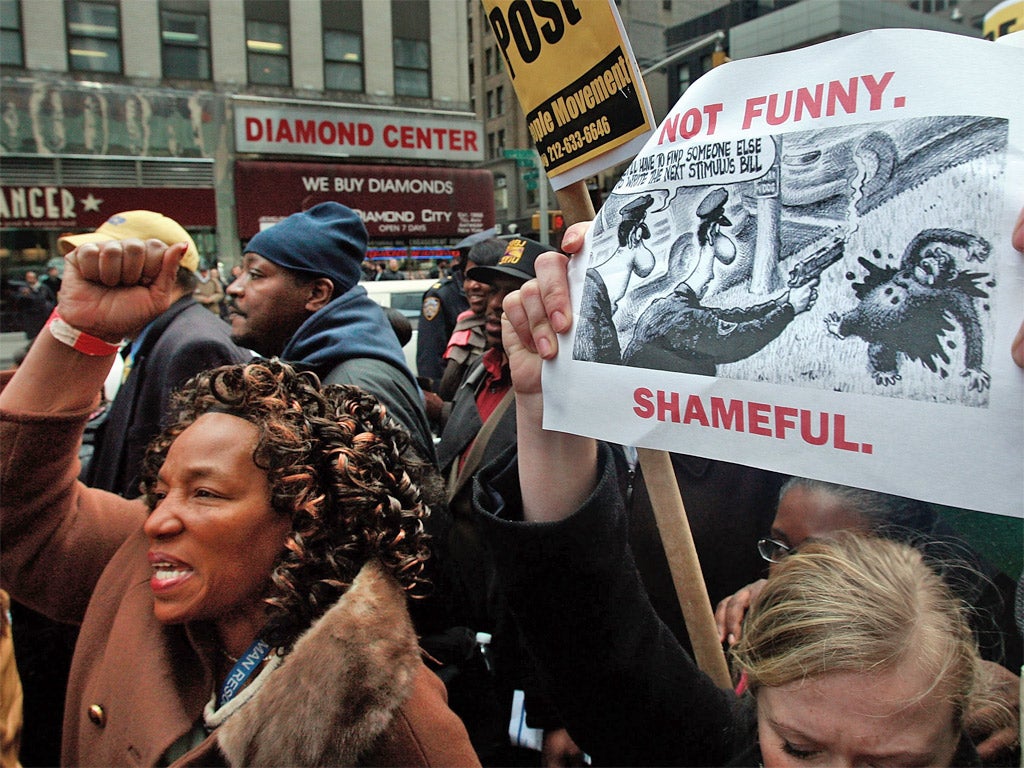New York Post editor Col Allan must disclose cartoon talks with Rupert Murdoch

The editor-in-chief of the New York Post, Col Allan, can no longer invoke so-called "editorial privilege" to avoid revealing details of conversations between himself and the newspaper's owner, Rupert Murdoch, after it published a cartoon in early 2009 that appeared to liken President Barack Obama to a chimpanzee, a New York judge has ruled.
Delivered by Judge Ronald Ellis, the ruling threatens potential embarrassment to Mr Murdoch in a long-running employment discrimination and harassment lawsuit filed against the tabloid and Mr Allan by former associate editor, Sandra Guzman, who is black and from Puerto Rico. She sued in late 2009 after being fired.
Ms Guzman, who was originally hired to boost Latino readership, alleges that she was let go because she complained about being harassed at the paper on the basis of race and gender. Her suit also suggests that she was being punished because she also spoke up about the cartoon.
Inspired by an actual incident, the caricature showed two policemen shooting a rabid chimpanzee. It sparked outrage and Mr Murdoch was forced to apologise because of the apparent reference to Mr Obama and his $787bn stimulus package. Holding a smoking gun, one cop said: "They'll have to find someone else to write the next stimulus bill."
Giving a deposition in the case earlier this year, Mr Allan declined to answer questions about the fall-out from the cartoon's publication, saying he was protected by editorial privilege. Rejecting that argument, Judge Ellis ordered Mr Allan to complete the deposition process, answering all the questions before him, including about discussions he had with Mr Murdoch about the cartoon.
Editorial privilege, the judge said, was usually applied to matters of journalistic practice, including the protection of sources. But in the context of alleged employment discrimination, "the plaintiff may explore the motivations of decision-makers, or individuals who influenced the decision-maker or participated in the decision", the judge said.
Join our commenting forum
Join thought-provoking conversations, follow other Independent readers and see their replies
Comments